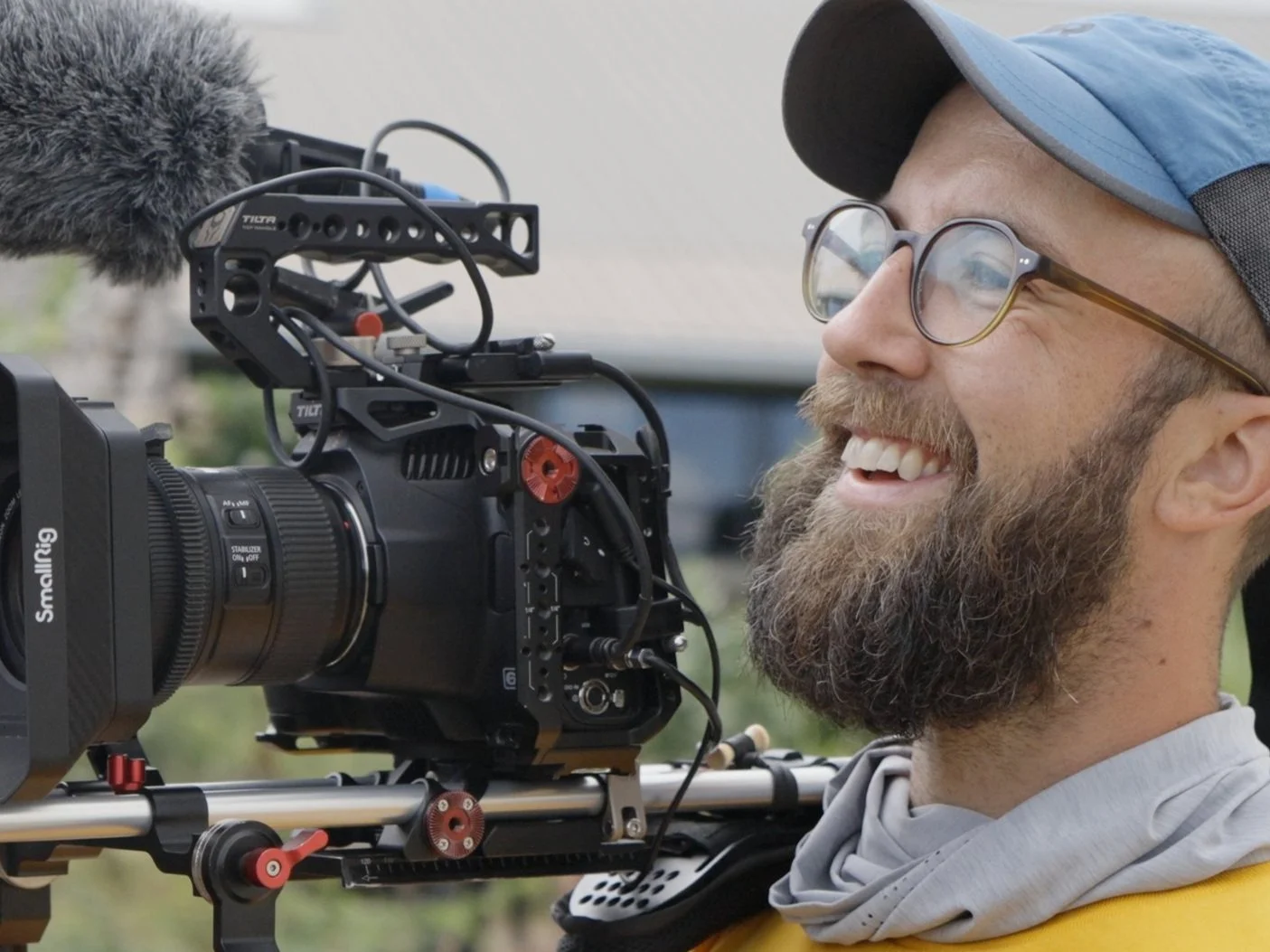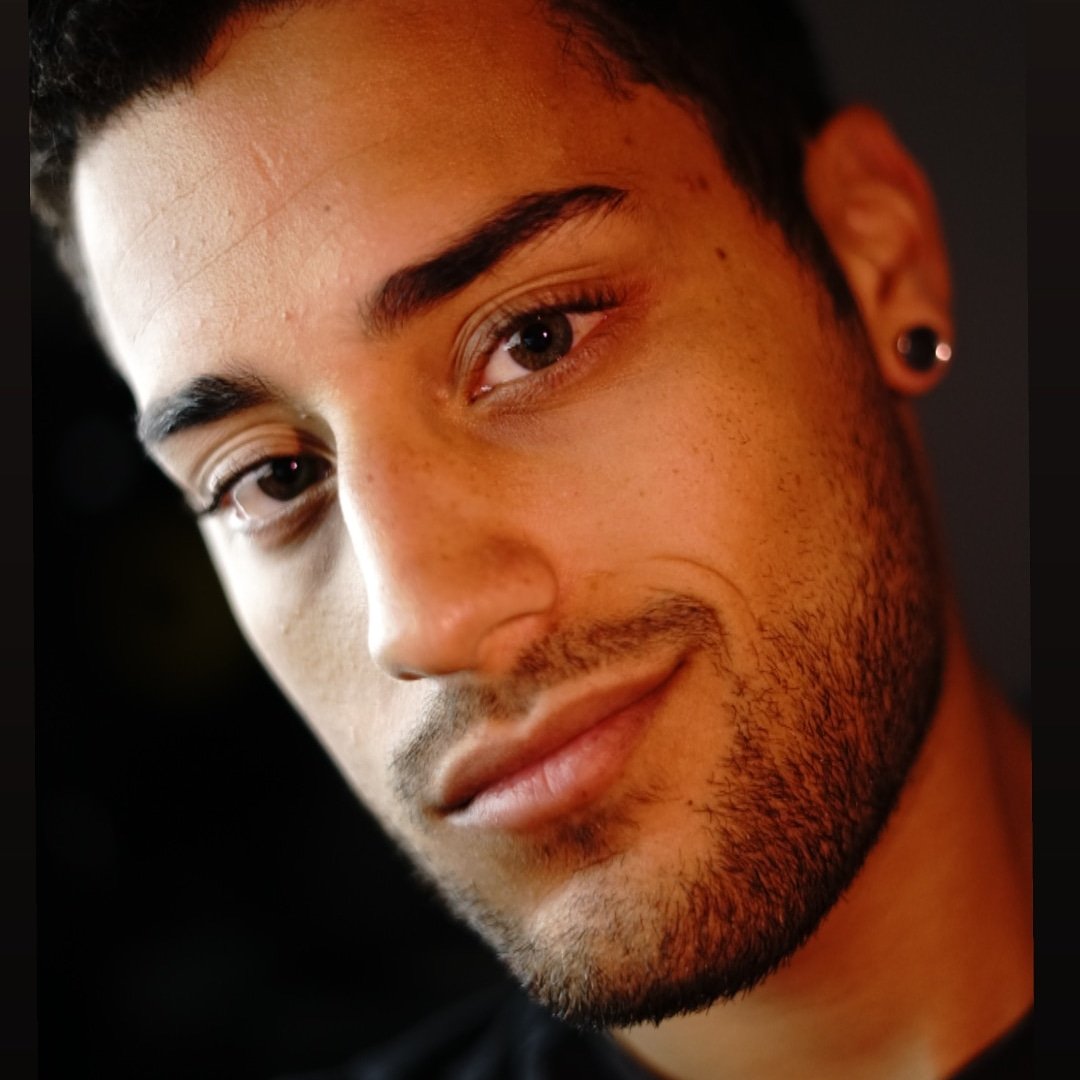
Meet the Filmmakers & Faces of Niu Now
Alex Cantatore
Producer, Director, Editor
Alex Cantatore is a mission-driven filmmaker committed to environmental, social and spiritual well-being. His 2021 short documentary Kumu Niu, the proof of concept for this project, won the 2002 award for Best Environmental Short Film at the Hawai‘i International Film Festival, the Jackson Wild Media Award for Best Human Planet - Short Form and is has been broadcast nationally on PBS. Alex has done extensive documentary film and video work for NGOs to promote forest conservation, sustainable building and investment in youth as the future stewards of our planet. Alex believes in a human-first and intersectional approach to filmmaking, and his documentary style reflects his commitment as a lifelong student in the art of listening.
Nathan Alexander
Director of Photography
Nathan Alexander is a commercial, narrative and documentary DP and Gaffer with a passion for light and an ardor for stories about people and the world we share. He developed a taste for human-centered story-telling in the world of broadcast news, tagging along to support his father, an Emmy Award-Winning video journalist. Nathan graduated from The Evergreen State College in Olympia, WA with a BA in Field Audio Recording/Mixing, and got his start working as a local news Editor for Northwest Cable News in Seattle, WA. Recent credits include Gaffer on Jonah Hill’s acclaimed mental health-focused documentary Stutz for Netflix and the award-winning short doc, Kumu Niu.
Dr. Manulani Aluli Meyer
Cultural Advisor and a Voice of Niu Now
Manulani Aluli Meyer is the fifth daughter of Emma Aluli and Harry Meyer who grew up on the sands of Mokapu and Kailua beach on the island of O‘ahu. The Aluli ohana is a large and diverse group of scholar-activists dedicated to Hawaiian education, justice, land reclamation, law, health, cultural revitalization, arts education, prison reform, food sovereignty, transformational economics, and music. Manu works in the field of indigenous epistemology and its role in world- wide awakening. Professor Aluli-Meyer obtained her doctorate in Philosophy of Education from Harvard (Ed.D. 1998). She is a world-wide keynote speaker, writer, and international evaluator of Indigenous PhDs. Her book: Ho‘oulu: Our Time of Becoming, is in its third printing. Her background is in wilderness education, coaching, and experiential learning and she has been an Instructor for Outward Bound, a coach for Special Olympics, and a cheer-leader for the Hawaiian Charter School movement. Dr. Aluli Meyer has been an Associate Professor of Education at University of Hawai‘i at Hilo and spent five years in New Zealand as the lead designer/teacher for He Waka Hiringa, an innovative Masters in Applied Indigenous Knowledge degree at Te Wānanga o Aotearoa, the largest Māori university with over 30,000 students. Dr. Aluli-Meyer is currently the Konohiki for Kūlana o Kapolei (A Hawaiian Place of Learning at University of Hawai‘i–West O‘ahu).
Indrajit Kamara Samarasingha Gunasekara
Co-Producer and a Voice of Niu Now
Indrajit Gunasekara is native to Southern Sri Lanka and has lived in Hawai’i for 20 years. He has an unbroken line of connection (3,000 years) to the use, cultivation and spiritual function of the coconut. His love and knowledge of the niu has activated the Niu Now movement, focusing on the coconut as a vital food resource. He is currently working on developing the Heritage-Based Community Coconut Gene Bank, which seeks to preserve the genetic diversity of niu. In addition to the traditional coconut knowledge he holds, Indrajit is currently pursuing a Masters of Science in Tropical Plants and Soil Science from the University of Hawai‘i Manoa.
Vilsoni Hereniko
Executive Producer
Vilsoni Hereniko is an award-winning professor, filmmaker and playwright whose research, teaching, and creative work explore issues related to climate change, indigenous storytelling, art and cultural identity, and the politics of representation in all kinds of media. Hereniko’s first narrative feature film Pear ta Ma ‘On Maf: The Land Has Eyes had its world premiere at the Sundance Film Festival and European premiere at the Rotterdam International Film Festival. Selected for competition at the Shanghai International Film Festival and screened at more than thirty international and indigenous film festivals, it won Best Dramatic Feature at the Imaginative Film and Media Arts Festival in Toronto, Canada. Fiji also nominated it as Best Foreign Language film at the Academy Awards in 2005. It also had a commercial theater run, was selected for broadcasting nation-wide on PBS, and screened at the Museum of Modern Art in New York City and the Smithsonian’s National Museum of the American Indian. Hereniko has also made short narrative films and documentaries and was a story and cultural consultant for Walt Disney’s animated film Moana. His latest film is an animated short set on his home island of Rotuma. It has won five international awards including Best Short at the Berlin Independent Film Festival (2022) and the Los Angeles International Film Festival (2022).
Justin Pascua - Local Shooter / Co-Editor
Justin Pascua Bio: Born and raised in Kāneʻohe, Hawaiʻi, Justin Pascua is a recent graduate of the University of Hawai'i at Mānoa's School of Cinematic Arts (SCA). While in the SCA program, he has written and directed nine short film projects, four of which winning numerous awards within the program and being accepted to multiple international film festivals. Justin is an aspiring professional film director with the goal of telling visually and emotionally compelling human stories through the universally resonant medium of film to give a different perspective of the world to all audiences.
Tara Johansen - Web Producer
Tara Johansen is a heart-centered storyteller with a decade-long career in digital marketing, photography, and content creation. She partners on projects that share a unified vision of hope and healing for the earth and all its creatures. Tara is interested in uplifting Indigenous voices in the spaces of ecological preservation and restoration, reciprocal economies, and human health and spiritual wellness.






